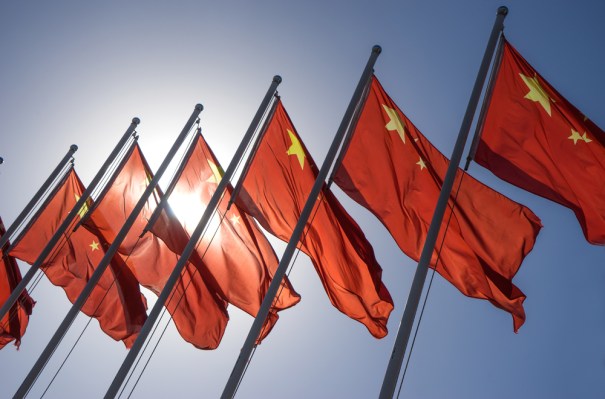China’s latest move to crackdown on VPN software that enables people to circumvent its internet censorship system appears to be a very worrying one.
Bloomberg reports that the government has requested that state-run telecom operators prevent their customers from running VPN apps on their network. Citing sources, the publication said that the government intends for the VPN block to come into effect by February 1 2018.
Update: Government officials have denied the report in comment to Chinese media.
The impact of such a move would be enormous. China Mobile (860 million subscribers), China Unicom (268 million subscribers) and China Telecom (227 million subscribers) are the biggest three telcos and each is stated-owned.
An effective block on VPNs would mean that these customers would be unable to access websites blocked by the government. Beyond social networks like Facebook and Twitter, that would include news sites and web pages deemed unsuitable for consumption in China. The New York Times and Wall Street Journal are among international news sites blocked in China, according to censorship monitoring service Great Fire.
Beyond restricting access to information, a universal VPN ban would make it difficult for some companies and employees based in China to do business. A recent SCMP article highlighted individuals impacted by China’s ongoing VPN crackdown — they included an environmental researcher who relies on Google Docs for collaboration and a Shanghai-based curator who works with artists overseas.
It isn’t for sure that this move will happen, even if there have been hints of aggressive policing of censorship avoidance. In 2015, it the Chinese government cut mobile access for some VPN users in Northwest province Xinjiang, an area that’s home to many ethnic minority groups and frequently a testbed for internet censorship. A nationwide clampdown, however, would be far more radical and wide-ranging.
Responses to the report have varied.
ExpressVPN, one service that is active in China, said it continues to see demand inside the country grow and that any reported crackdown won’t change that.
“It’s clear that VPNs play a fundamental role in China’s increasingly connected and globalized economy – whether it’s onshore, corporate VPN services like China Telecom’s or offshore services like ExpressVPN. VPNs are a critical tool for secure communication and global connectivity,” a company spokesperson told TechCrunch.
GreatFire, meanwhile, suggested that other activities aimed at suppressing the use of VPNs have already made a huge impact.
“Earlier this year, [the Chinese government] pushed to rid the market of unregistered/unlicensed domestic VPN providers. Then they asked Apple to remove VPN apps from the app store and have asked Android stores to do the same. If these stores also interfere and disable updates to these apps then I think by the time February then a lot of this may be inconsequential because the number of remaining users will have already diminished so greatly,” GreatFire’s pseudonymous co-founder Charlie Smith said in a statement.
Beyond a censorship tracker, GreatFire also offers its own Android VPN FreeBrowser and other ‘censorship-proof’ services that include a collaboration with The New York Times.
Beijing has played cat and mouse with VPN providers over the past few years. In January, it made government approval mandatory for China-based companies offering VPNs. Essentially that made many local services illegal.
It has acted on that, too. It recently forced two popular Chinese VPN services to close, but those based overseas continue to evade its reach. That could be one reason why it is considering this extreme approach to stamping VPN usage out altogether.
Bloomberg’s report comes just over a month after China instituted a wide-ranging set of cybersecurity laws that could potentially impact foreign businesses. The exact scope of the new regulations, which come into full effect in 2018, is unclear, but they require certain data to be stored on Chinese which has raised concern among free speech organizations.
